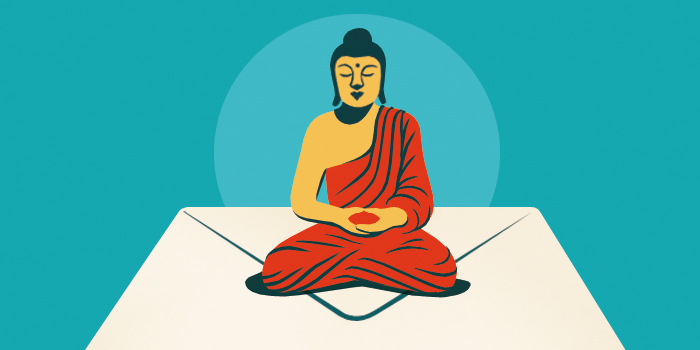What does secular dharma teach about enlightenment?
Those who engage in secular dharma practice do so to respond to every aspect of their experience with a framework of ethical values. Their aim is to flourish as human beings rather than reach some kind of “enlightenment.” Secular dharma practitioners also do not meditate in order to become technically proficient in practices that will guarantee certain attainments, such as an understanding of “the ultimate nature of reality” or liberation from samsara, the cycle of life, death, and rebirth.
Secular dharma practice works with the self and the world. Practitioners’ work is to understand and transform these according to the values and vision of the dharma itself. This is not accomplished by transcending the self and the world, but by creating the self and the world in which we live. This task requires commitment, technical accomplishment, and imagination.
The third task of secular dharma—to see the ceasing of reactivity and savor each moment—is the movement’s interpretation of the Pali word nibbana, more commonly known in its Sanskrit form, nirvana. This is what Buddhist traditions refer to as “enlightenment.” In English, the word “enlightenment” can suggest the flicking on of a switch: either one is enlightened or not. For secular dharma practitioners, however, the Pali word bodhi, “awakening,” is a better fit. “Enlightenment” implies a permanent change of status that takes someone beyond the realm of suffering. In contrast, “awakening” is an experience, transient like any other, but one which—if entered into often enough—has a formative impact on who we are and how we live our everyday lives. For examples of this kind of awakening, we can look to the metaphors of the carpenter, the farmer, and the arrowsmith in the Dhammapada (a collection of the Buddha’s sayings). These verses describe artisans whose awakened lives are embedded in a creative relationship with the ordinary, everyday sublime.

Tricycle is more than a magazine
Gain access to the best in sprititual film, our growing collection of e-books, and monthly talks, plus our 25-year archive
Subscribe now